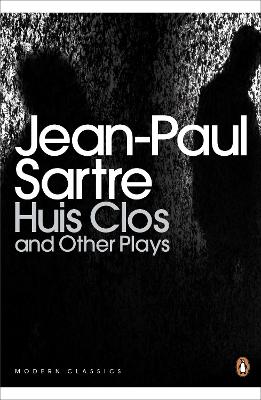Reviewed by celinenyx on
The Respectable Prostitute was interesting, though a bit simplistic. Sartre is very much into ethical responsibility, and the prostitute in this play only wants to do the right thing. In true essentialist fashion she is faced with an impossible situation which has no "good answer", and the end result is pretty depressing.
Speaking of depressing, next up is Lucifer and the Lord. This play is incredibly dense and long. The religious themes are heavy-handed and the writing sometimes hard to follow. I can understand why this play is very beloved by Sartre himself, but as a reader it's not very enjoyable. The play could have used some culling of repetitious scenes.
Huis Clos, I quite enjoyed. The philosophical themes are there, but not pounded into your head like in Lucifer and the Lord. In many ways the play is very recognisable, and it combines comic and tragic elements in an entertaining way.
Reading updates
- Started reading
- 27 October, 2014: Finished reading
- 27 October, 2014: Reviewed
